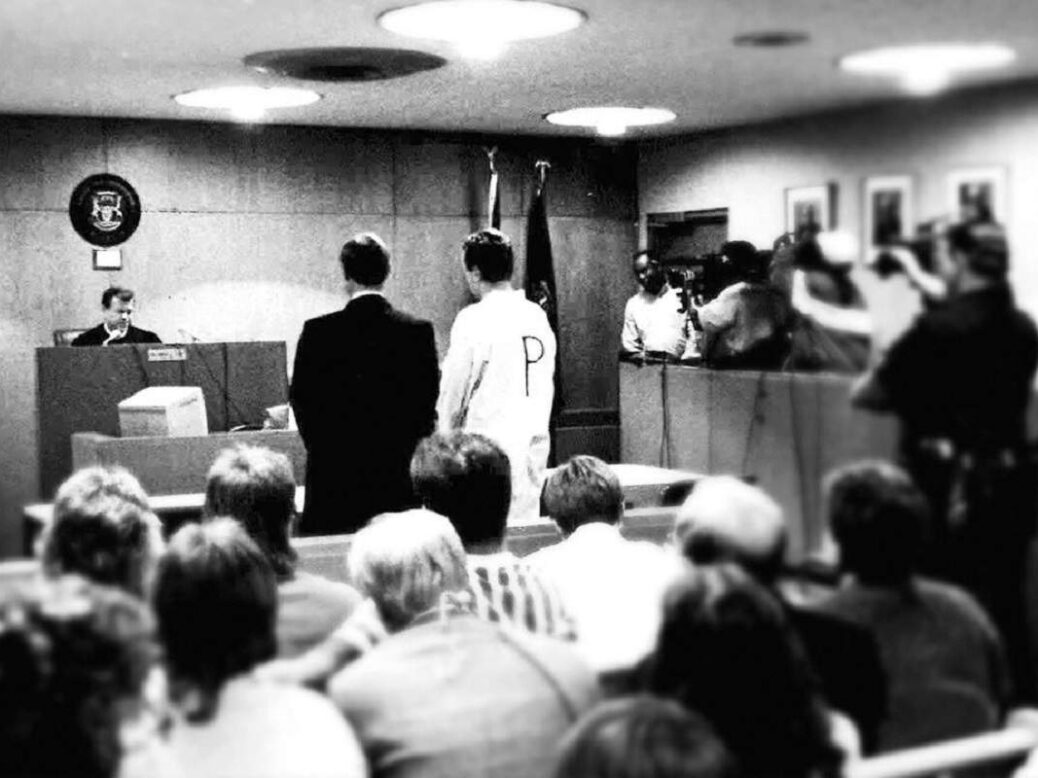
Would you confess to a crime you hadn’t committed? For some days now, I’ve been asking myself this question. Furious and punchy, my gut tells me immediately that I wouldn’t, not in a million years. But then comes a quieter, less certain voice. Isn’t guilt, for some of us, a near-permanent state? Apt to apologise even when I’m not in the wrong, I cannot believe I’m the only woman alive who tortures herself in the small hours by thinking she has unknowingly done something very bad indeed.
All this was provoked by The Confession Tapes, billed on social media as “our” next Netflix true-crime binge-watch. In this instance, however, the breathless excitement is misplaced: binge-watching would seem to me to amount to a form of self-harm. Yes, it’s compulsive. Stoked by bloody police photographs, the atmosphere can be suspenseful to a queasy-making degree. But like Making a Murderer and The Keepers before it, its prime concern is not with crimes committed so much as with the American justice system, for which reason its narrative arc is the opposite of cathartic.
At best, it will leave you feeling uneasy. At worst, you may find yourself sinking down into something akin to despair.
Director Kelly Loudenberg tells six stories over the course of seven episodes. Each involves a brutal murder (or murders) for which a perpetrator (or perpetrators) has (have) since been safely (unsafely) convicted. All are linked by one factor: the conviction was secured primarily thanks to a confession extracted by the police under extreme circumstances. Lawyers were not present; mind games were played; interviewees were exhausted, unstable, traumatised. In one instance, the authorities took what’s known as the “Mr Big” approach: undercover officers, playing their roles with all the gusto of a local am-dram society, pretended to be gangsters whose criminal networks could save the accused from death row if only they (the accused) would provide them with all the facts.
Why did juries believe these confessions, unaccompanied as they were by forensic evidence? Here, we go back to where we began. “No,” they told themselves. “I would not admit to a crime I had not committed.” Either such citizens have no softer inner voice – or, more likely, the idea of listening to it is simply too terrifying.
Predictably, the majority of the accused are poor and ill-educated, and perhaps this is one reason why the case of Sebastian Burns and Atif Rafay, two articulate middle-class boys from Canada, stood out for me (the pair were found guilty of the 1994 murder in Bellevue, Washington, of Atif’s parents and sister; at the time, they were 19). Or perhaps it is just that I still can’t understand why an American court considered “Mr Big” evidence admissible when the technique is illegal in the US? (The “gangsters” who encouraged Burns and Rafay to indulge in the most pathetic teenage braggadocio I’ve ever witnessed belonged to the Royal Canadian Mounted Police.)
The saddest part of this tale: hearing Burns’ father, David, describe his prison visits. (Burns, serving a life sentence without possibility of parole, has exhausted all his appeals.) The strangest part: the way James Jude Konat, like all the prosecutors in this series, was so happy to perform for the camera, more game-show host than lawyer.
It feels obscene to move on, but move on I must. W1A (18 September, 10pm) is enjoying a bewilderingly long life (this is series three). Is the joke still funny? I think it’s wearing thin, though this may be born of my own recent encounter with the BBC’s bizarre machinery (humiliating, in a word).
Siobhan Sharpe (Jessica Hynes) and her team of media morons have been bought by a Dutch company, Fun, where good ideas are celebrated with silent discos. One idea is a YouTube-style platform, BBC Me. Meanwhile, Ian Fletcher (Hugh Bonneville) is helming – nice BBC word – a group that will deliver the corporation’s “More of Less Initiative”, and a cross-dressing footballer has successfully plonked his bum on the Match of the Day sofa. Business as usual, in other words.



